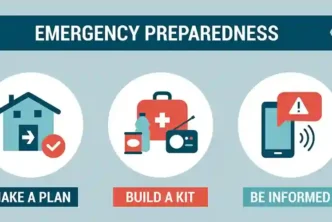A loan becomes delinquent when a borrower misses one or more payments. It can lead to a variety of consequences, including the lender selling or charging off the debt. It can also hurt credit scores and make it difficult to borrow money in the future.
How severe the impact is depends on the type of loan and lender policies. Generally, delinquencies and defaults will remain on credit reports for seven years.
Student Loans
The consequences of a delinquent student 금융계산기 can be severe. A borrower is considered delinquent if they miss one or more payments on their federal or private student loans and are more than 270 days late (federal) or 120 days late (most private loans).
Student loan borrowers have several options to help them avoid default, including deferment and forbearance. However, once a loan becomes delinquent the entire balance is immediately due and cannot be postponed with these tools. The Education Department offers options for borrowers to return to good standing, such as rehabilitating loans by making nine agreed-upon payments over 10 months or consolidating defaulted loans into a new loan with an income-driven repayment plan. The agency also offers loan discharge for cases of permanent and total disability and bankruptcy.
Defaulting on your student loans can damage your credit report, which will make it difficult to get a job or rent an apartment. You will be contacted by debt collection agencies, and the government can garnish your wages or take your tax refunds or federal benefits to pay your outstanding debt.
Most borrowers who defaulted on their student loans did so within three years of entering repayment and often reported that they were unaware of the specific penalties that would apply to them, according to a recent study by The Pew Charitable Trusts. The study found that borrowers who defaulted owed thousands of dollars more than those who did not default on their loans.
Car Loans
A car loan is a big financial commitment, and it can be devastating to your credit score if you miss your payments. Your lender typically reports any past-due payments to the major consumer credit bureaus, Equifax, Experian and TransUnion. If you miss your payment for 30 days, it can hurt your credit score by 100 points or more.
Despite the strong economy, Americans with auto loans are falling behind on their payments at a record pace. Delinquencies on so-called 연체자대출, made to borrowers with low credit scores, are rising rapidly. Some analysts see the trend as a canary in the coal mine for other types of debt, echoing the subprime mortgage lending boom of the mid-2000s that led to the Great Recession.
The number of Americans with negative equity in their cars—meaning they owe more than the car is worth—has also risen. Combined with high interest rates and sky-high car prices, the trend could be a sign that many American households are stretched thin.
If you get too far behind on your auto loan, the lender will declare you in default. This varies by lender; some may consider you in default after the first missed payment, while others wait 90 days or more before making that determination. Once in default, your lender will ramp up its collection efforts, which can include handing your account over to in-house or third-party collections agencies that can repossess your car.
Mortgages
Mortgage delinquencies can have severe consequences, including foreclosure on a borrower’s home. Mortgages typically become delinquent when a homeowner experiences financial hardship such as a loss of income or expenses like expensive medical bills. Many lenders have programs to help borrowers avoid foreclosure such as repayment plans or loan modifications. A delinquent mortgage can impact a borrower’s credit score, which could make it more difficult to secure future loans.
A strained budget is often at the root of most mortgage delinquencies, and it is often possible to remedy the situation by cutting back on expenses. Borrowers should track their monthly spending and create a budget to see where they can save. They may also consider increasing their earnings by taking on a side hustle or turning a hobby or special skill into a business opportunity.
It is important to contact a mortgage servicer at the first sign of trouble making payments. Lenders usually don’t consider a loan delinquent until it is 60 days past due, but this varies from lender to lender. A debt servicer should work with the borrower to reach a payment arrangement and bring the loan current. If a repayment plan is not possible, the lender may offer a forbearance agreement, which can include changes to the amount owed or the loan term of the mortgage to make it more affordable.
Credit Cards
Lenders and credit card issuers give you the opportunity to borrow money and pay it back over a long period of months or years. Typically, there will be a set due date each month on your account, and if that due date passes without you making a payment, then your loan or credit card goes delinquent. Once a loan or credit card becomes delinquent, it can cost you in terms of late fees and can also damage your credit score. This can make it harder to get approved for loans and credit cards in the future, or even to receive approval at all.
Though the terms delinquent and default sound similar, they have very different connotations. Delinquency refers to missing a single scheduled payment on any form of financing, including student loans, mortgages, auto loans and credit card balances. A loan can go into default, however, if you miss multiple payments or fail to meet other requirements in your contract, such as failing to make interest-only payments on an extended term loan.
Both kinds of delinquencies can have a negative impact on your credit scores, but they are not permanent and can be resolved with timely debt payments. Using a tool like Tally+credit card repayment app can help you manage your credit card bills and prevent them from becoming delinquent.





